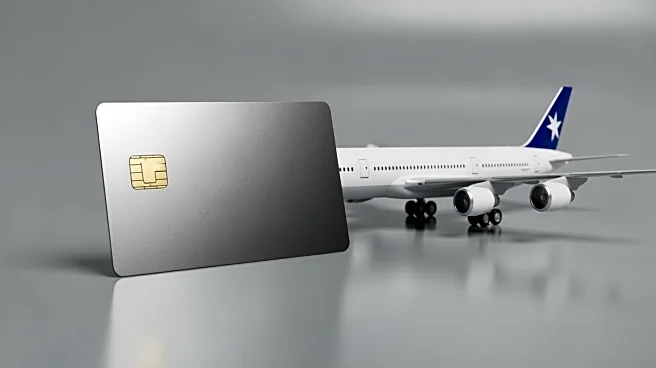What's Happening?
Visa and Mastercard are reportedly nearing a settlement in a long-standing lawsuit that could allow merchants to refuse certain types of credit cards, including rewards cards. This potential agreement would reduce credit card interchange fees by an average
of 10 basis points over several years and grant merchants the flexibility to reject premium rewards cards. This change could significantly impact the airline industry, which heavily relies on revenue from co-branded credit card deals. Airlines have historically used these partnerships to bolster their financial stability, especially during economic downturns.
Why It's Important?
The potential settlement could have profound implications for the airline industry, which depends on credit card revenue for financial viability. Airlines like Delta and Southwest have strategically expanded routes to attract credit card customers, and a shift away from rewards cards could disrupt these strategies. Additionally, the settlement could influence the broader credit card market by encouraging merchants to steer consumers towards non-rewards cards, potentially affecting consumer spending habits and the profitability of rewards programs. This development may also pressure American Express, known for its higher interchange fees, to adjust its business model.
What's Next?
If the settlement is finalized, merchants may begin selectively rejecting rewards cards, particularly in low-margin or high-ticket sectors such as gas, utilities, and medical billing. This could lead to a gradual shift in consumer payment preferences and potentially stabilize interchange fees at current levels. Airlines and credit card companies will need to adapt to these changes, possibly by renegotiating co-brand agreements or exploring new revenue streams. The settlement could also reduce legislative momentum for further interchange fee regulations, providing some stability to the payment processing industry.
Beyond the Headlines
The settlement could trigger a reevaluation of the rewards ecosystem, as merchants weigh the benefits of accepting rewards cards against the potential cost savings of rejecting them. This shift may lead to increased transaction costs for consumers, who might face surcharges or the inconvenience of managing multiple payment methods. The long-term impact on consumer loyalty programs and the financial strategies of airlines and credit card companies remains uncertain, as stakeholders navigate the evolving landscape of payment processing.
















